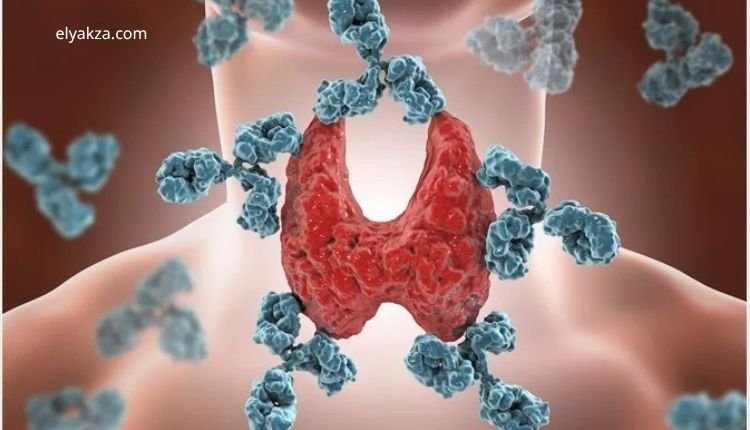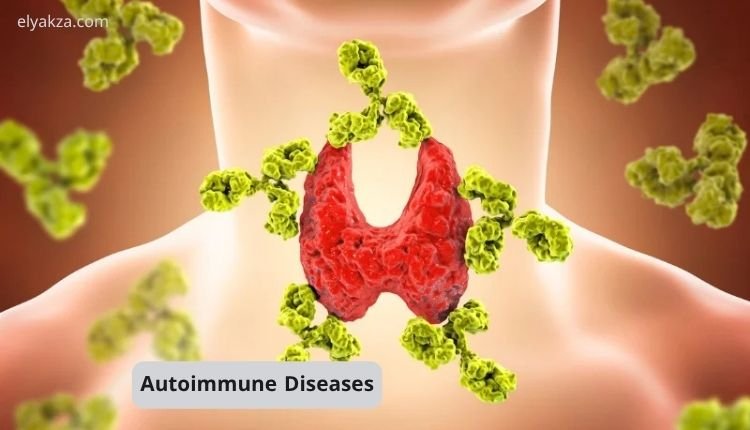The 2025 Nobel Prize in Physiology marked a historic milestone in medical science, particularly for millions of people battling autoimmune diseases. The awarded research unveiled groundbreaking insights into the genetic and cellular mechanisms behind these conditions, opening new horizons for treatment and recovery.
قائمة المحتويات
For years, autoimmune disorders have puzzled both patients and scientists—why does the immune system, designed to protect us, suddenly turn against our own cells? The Nobel-winning study has provided not only answers but also hope. It identified a key genetic factor that governs immune regulation and offered potential pathways to restore balance without suppressing the immune system entirely.
This article dives deep into the core findings of this research, explaining how they reshape our understanding of autoimmune disease treatment, and how individuals can support immune regulation naturally and scientifically.
Understanding Autoimmune Diseases
Autoimmune diseases occur when the immune system fails to distinguish between “self” and “non-self.” Normally, immune cells—especially T cells—are trained to attack foreign invaders like bacteria, viruses, or abnormal cells, while leaving the body’s own tissues unharmed.
This “training” process primarily happens in an organ called the thymus gland, where immature T cells learn to identify and tolerate the body’s own cells. When any T cell shows an abnormal tendency to attack self-tissue, it is eliminated through a mechanism called central tolerance.
However, this system isn’t foolproof. Some rogue immune cells escape elimination and remain active in the body. To counter this, the immune system has a backup layer known as peripheral immune tolerance, managed by specialized cells called regulatory T cells (Tregs). These Tregs act as peacekeepers, preventing self-destructive immune reactions.
When both central and peripheral tolerance fail, autoimmune diseases emerge—conditions like lupus, rheumatoid arthritis, multiple sclerosis, and many others.
The Role of the FOXP3 Gene: The Key Discovery
The Nobel-winning researchers identified a pivotal player in immune regulation: the FOXP3 gene. This gene exists in all humans and serves as a master switch that directs ordinary T cells to become regulatory T cells (Tregs).
In simpler terms, FOXP3 tells certain immune cells to calm down and stop attacking the body’s own tissues. When this gene functions properly, it maintains immune balance. But when it’s disrupted—due to genetic mutations or environmental stressors—the regulatory system collapses, leading to uncontrolled inflammation and autoimmune reactions.
Patients with severe or multiple autoimmune conditions often show defects in this gene’s function, a phenomenon known as IPEX syndrome. These cases are rare but highlight how critical FOXP3 is to maintaining immune harmony.
“Read Also: فوائد الكرنب المخمر“
Are All Autoimmune Patients Affected by FOXP3 Mutations?

Thankfully, not all autoimmune sufferers have a defective FOXP3 gene. The Nobel research clarified that only a small subset of patients—those with extreme, multi-system autoimmune syndromes—carry such genetic mutations.
For the vast majority (about 90%), the FOXP3 gene still exists and functions, though its activity may be weakened. This reduced expression can result from environmental, nutritional, and psychological factors, rather than permanent genetic damage.
This finding is crucial because it means that many autoimmune conditions are not irreversible. By supporting the body’s natural mechanisms and improving gene expression, it’s possible to restore immune balance without shutting down the entire immune system.
“Read Also: حمية الخلايا الجذعية“
Epigenetic and Environmental Factors Affecting Autoimmunity
The study further linked FOXP3 function and immune regulation to epigenetic factors—elements that influence gene activity without altering the DNA sequence.
Several factors can suppress the healthy function of immune-regulating genes, including:
- Chronic stress and emotional trauma
- Nutritional deficiencies (zinc, vitamin D, omega-3, and antioxidants)
- Chronic infections and inflammation
- Environmental toxins (heavy metals, pollution, pesticides)
- Gut microbiome imbalances
These factors, long discussed by integrative health practitioners, now have solid scientific backing. Supporting the immune system isn’t about suppressing it—it’s about restoring balance through lifestyle, nutrition, and natural therapies.
“Read Also: عشبة اليوهمبي“
The Danger of Immune Suppression
One of the most powerful messages from this discovery is the rejection of the old belief that autoimmune diseases result from an “overactive” immune system.
As the research emphasizes, these diseases actually stem from immune dysregulation, not hyperactivity. Suppressing immunity with steroids or biological drugs may relieve symptoms temporarily, but it worsens the underlying imbalance.
True healing requires retraining the immune system—not silencing it. This is the essence of the new medical approach inspired by the Nobel-winning work.
“Read Also: فوائد البربرين“
Promising New Treatments Based on the Discovery
The Nobel Prize research paves the way for two major therapeutic innovations:
1. Regulatory T Cell Therapy (Treg Therapy)
This approach involves extracting regulatory T cells from a patient, multiplying them in the lab, and reintroducing them into the body. These reinforced cells help restore immune tolerance, preventing further self-damage. It’s a revolutionary concept—using the patient’s own cells to reprogram immunity naturally, without harsh drugs.
2. Gene Therapy for FOXP3 Restoration
In severe cases where the FOXP3 gene is defective, researchers are exploring gene editing and replacement therapy, inserting a healthy version of the gene to restore immune control. Though still experimental, these methods show immense promise for life-threatening autoimmune conditions.
Natural and Supportive Approaches
For most autoimmune patients, the key is supporting gene function and immune balance naturally. This involves:
- Nutrient optimization: Ensuring adequate intake of vitamins A, D, E, zinc, selenium, and essential fatty acids.
- Reducing stress: Through meditation, therapy, and adequate rest.
- Restoring gut health: Using probiotics, prebiotics, and anti-inflammatory foods.
- Detoxifying the environment: Avoiding toxins, processed foods, and synthetic chemicals.
- Anti-inflammatory herbs: Such as turmeric, green tea, and astragalus, which modulate immune function safely.
These holistic strategies aim to enhance epigenetic regulation, allowing the FOXP3 gene and Treg cells to perform their natural protective roles effectively.
Autoimmune Diseases Are Not Always Chronic
Perhaps the most inspiring message from this discovery—and from the experiences of many survivors—is that autoimmune diseases can be reversible. When the root causes are addressed—whether they are emotional, nutritional, microbial, or environmental—the immune system has the remarkable ability to heal itself.
Suppressing the immune system, on the other hand, works against this goal. True recovery comes from understanding and supporting the body’s built-in intelligence, not disabling it.

Frequently Asked Questions about Autoimmune Diseases and the FOXP3 Gene
1. What is the FOXP3 gene, and why is it important?
The FOXP3 gene controls the development of regulatory T cells, which prevent the immune system from attacking the body’s own tissues. When FOXP3 fails, autoimmune reactions occur.
2. Are autoimmune diseases caused by a strong immune system?
No. They result from poor immune regulation, not excessive strength. The immune system is confused, not powerful—it attacks the body due to a failure in balance, not overactivity.
3. Can autoimmune diseases be cured?
In many cases, yes—especially when the root causes are addressed. Healing involves restoring immune balance, improving gene expression, and reducing inflammation, rather than lifelong suppression.
4. What are Treg therapies, and how do they work?
Treg therapy involves using a patient’s own regulatory T cells to calm autoimmune responses. Scientists expand these cells in the lab and reinfuse them to restore normal immune tolerance.
5. How can I naturally support my immune regulation?
Through balanced nutrition, stress management, detoxification, and maintaining a healthy gut. These habits promote proper FOXP3 gene expression and immune harmony.
Autoimmune Diseases: Conclusion
The 2025 Nobel Prize in Physiology didn’t just recognize a scientific discovery—it validated years of clinical observation and holistic insight. It confirmed that autoimmune diseases aren’t a life sentence but a complex, reversible imbalance rooted in both genes and environment.
By focusing on restoring immune balance through natural support, Treg therapies, and future gene treatments, medicine is entering a new era—one that values regulation over suppression, and healing over management.
For anyone battling autoimmune conditions, this discovery is more than just hope—it’s proof that science is finally catching up with what many have long believed: the body can heal when we understand it deeply enough.
الدكتور كمال خالد كاتب وخبير في الصحة العامة، يقدم محتوى طبيًا موثوقًا مبنيًا على أسس علمية حديثة. يكتب عن التغذية السليمة، الوقاية من الأمراض، الصحة النفسية، وأسلوب الحياة الصحي.
يهدف من خلال مقالاته إلى نشر الوعي الصحي بين القراء بطريقة مبسطة، بعيدًا عن المصطلحات الطبية المعقدة، مع تقديم نصائح عملية قابلة للتطبيق في الحياة اليومية.
كما يولي اهتمامًا خاصًا بقضايا الصحة المجتمعية والتحديات الصحية التي تواجه الأفراد في العالم العربي، مما يجعل محتواه مرجعًا مهمًا لكل من يبحث عن حياة صحية متوازنة قائمة على العلم والمعرفة.

